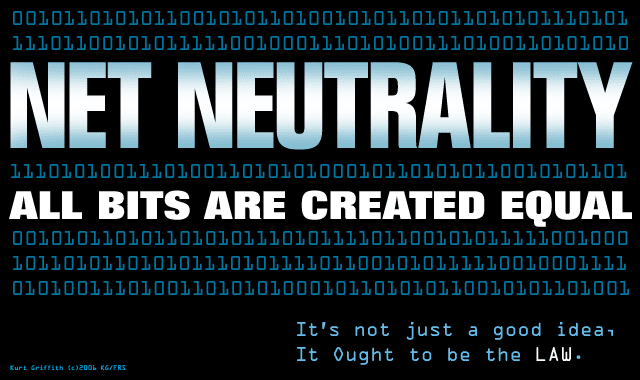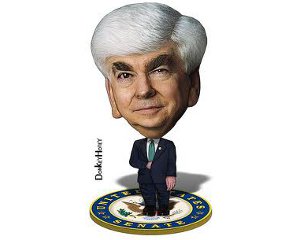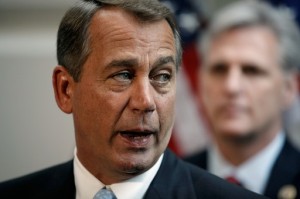 The current bill in Congress known as SOPA (Stop Online Piracy Act) or as it’s known in the Senate, PROTECT IP (Preventing Real Online Threats to Economic Creativity and Theft of Intellectual Property) is just beginning to get coverage in the non-technical press. In draft, this was called the E-PARASITE Act (Enforcing and Protecting American Rights Against Sites Intent on Theft and Exploitation Act). Seriously, who names these things?
The current bill in Congress known as SOPA (Stop Online Piracy Act) or as it’s known in the Senate, PROTECT IP (Preventing Real Online Threats to Economic Creativity and Theft of Intellectual Property) is just beginning to get coverage in the non-technical press. In draft, this was called the E-PARASITE Act (Enforcing and Protecting American Rights Against Sites Intent on Theft and Exploitation Act). Seriously, who names these things?
From the names, it all sounds like goodness right? Theft, exploitation, piracy, who wants that? If only it were that simple.
The intent of the bill is to crack down on illegal online file sharing. There’s ample room for debate about how damaging online piracy truly is, and whether or not it makes business sense for content providers to aggressively attack their customers, but that’s a topic for another day. Even if we accept that online piracy threatens to destroy the music and movie industry (just like VHS tapes and writable CDs did), the proposed bill is absolutely not the way to go about preventing it.
There are lots of articles out there on why this is so. You can read the bill yourself, or read others’ analyses here, here, or here. However, let me try and boil down the basics for you.
The Great Firewall of the USA: Enforcement of SOPA will require the creation of a Internet filters by all domestic ISPs to control what sites you are allowed to visit. This may be well intentioned censorship, but it’s still censorship, and it puts the mechanisms in place for less benign intentions. Do we really want to head down that slippery slope?
Online Security: Let’s face it, once the firewall goes up, many of us will find ways around it. This will involve a combination of foreign or rogue DNS servers, proxies, or VPN services. It doesn’t take a lot of imagination to believe that once you start getting your Internet delivered through black market servers that your online security will be at greater risk.
No More Safe Harbors: The current law allows web site owners some protection under the “safe harbor” clause. That means that if you were to post a comment on this article containing some illegal content, the owner of the content could demand I take it down, and I would be obliged to do so. But if the owner wanted to sue for damages, he couldn’t sue me as the website owner. Rather, he’d have to come after you as the one who posted it. Under SOPA, that protection is gone. If you upload a funny Big Bang Theory clip to Facebook, CBS can sue Mark Zuckerberg for damages. SOPA will undoubtedly result in far fewer sites taking on the risk of letting you post things on them. The web will become a lot less participatory.
Loss of Due Process: This is perhaps the most egregious implication. Under SOPA, website owners are guilty until proven innocent. Based only on an accusation of having illegal content on your site, anyone can demand that the ISPs block access to your site, and may further demand that all banks stop doing business with you. Sure, you can appeal to the court, but that could take months or years to settle. In the meantime, you’re out of business.
As the major backer of SOPA, the entertainment industry is making lots of assurances that the provisions of SOPA would never be used for anything but the most noble of causes. They are full of it. These same people have already collaborated with the Department of Homeland Security and Immigration and Customs Enforcement to stretch the In Rem Forfeiture clause (allowing for the immediate seizure of property used in the commission of a crime) to include domain name seizures of websites with no warning or due process. They are wielding this with a broad brush and have repeatedly seized domains eventually found legal by the courts, but by then put out of business. Oops.
This whole SOPA mess has also created some strange bedfellows. The tech community and most high tech companies have come out against it. Along side them are Michele Bachmann and her Tea Party Coalition. Ironically, the Tea Party and the Techies were on staunchly opposite sides of the Net Neutrality debate, so this is a somewhat uneasy alliance.
On the other side we find the Hollywood studios, music companies, and the organizations like RIAA and the MPAA that lobby for them. We also find VP Joe Biden and several key Democratic legislators who have historically been supportive of anything Hollywood wants. To her credit, Hillary Clinton has expressed some concerns about SOPA, and Obama claims to be on the fence.
To that end, Obama is currently taking input on the issue. If you want to oppose the bill, go to the White House website and sign the online petition. As of this writing, we are still a few thousand signatures short of the “pay attention to me” threshold. Yes, you have to create a White House account to sign the thing, but it only takes a minute.
On the other hand, if you think SOPA sounds like a great idea and want to know how to support it, please write a long letter and mail it to your local animal shelter. They are always looking for material to line the bird cages with.
 It’s this sort of thing that really pisses me off. The intention is exactly right. The Internet should be free of interference. It should continue to be accessible by anyone, empower content and service creators, and foster innovation. Yet excluding all government regulation of the Internet is exactly contrary to achieving that goal.
It’s this sort of thing that really pisses me off. The intention is exactly right. The Internet should be free of interference. It should continue to be accessible by anyone, empower content and service creators, and foster innovation. Yet excluding all government regulation of the Internet is exactly contrary to achieving that goal.



